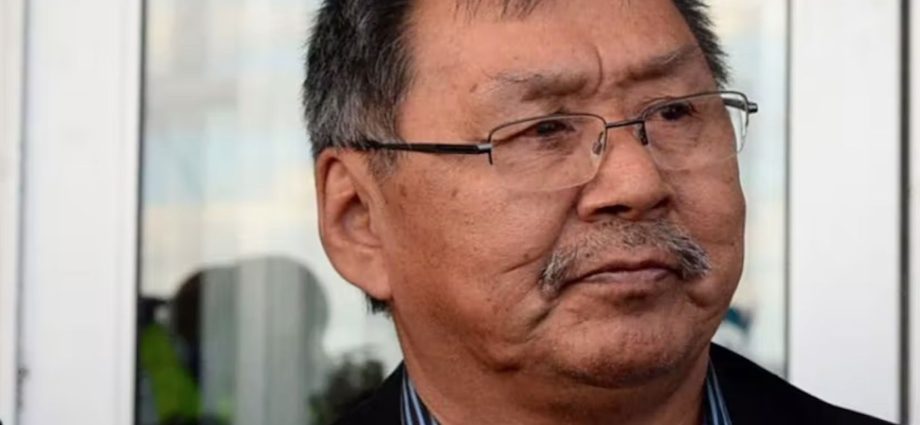
By Peter Jackson, Local Journalism Initiative Reporter, The Telegram
August 20, 2022
The president of Nunatsiavut says he is “disappointed” the province went with an online poll in its decision not to rename the Colonial Building in St. John’s, and should reconsider its decision.
In a news release Monday, Aug. 15, the Newfoundland and Labrador government cited the poll in which 69 per cent of respondents said the building’s name should remain the same.
Johannes Lampe called that reasoning “weak.”
“The fact non-Indigenous people do not want the name of the building changed should not have come as a big surprise, simply because the vast majority have no understanding whatsoever about what reconciliation with Indigenous peoples really means,” he said in a statement.
Lampe says the Nunatsiavut government was consulted on the matter and that it suggested the name “Parliament House” because the word “Colonial” has a negative connotation given the adverse effects of European settlers on Indigenous peoples.
“Reconciliation is not comfortable,” he said. “By its very nature, it means having to make decisions that are not always popular, but necessary in order to ensure the interests of marginalized members of society are respected and protected.”
Lampe noted that Premier Andrew Furey continues to promote reconciliation as something that is dear to him and his government.
“If that is indeed the case, then he should reconsider this decision,” he said.
Surprised by announcement
Grand Chief Etienne Rich of the Innu Nation says Indigenous leaders were only made aware of the province’s intention to consult on a name change.
“Innu Nation and other Indigenous leaders were informed of the potential for a name change to the Colonial Building during meetings of the Premier’s Indigenous Table and provided an opportunity to comment,” he said in a statement Tuesday. “Innu Nation, however, was not aware of the province’s intent to finalize the consultation process and were surprised yesterday by the announcement that the discussion has been concluded.”
However, Rich said the name of the building stands as a stark reminder of how settlers marginalized original inhabitants of the land.
“A name change would not erase that history,” he said.
He added that the Innu are determined to continue to participate in the current consultation process, “so that the truth about the effects of colonization and the reconciliation that is required are part of the narrative.”
No consensus
When asked Monday whether Indigenous leaders had signed off on the approach the government has taken, Tourism and Culture Minister Steve Crocker said he couldn’t speak to the issue because engagement with them is the purview of the premier and Indigenous Affairs Minister Lisa Dempster.
However, Crocker is quoted in a CBC story as saying, “We weren’t able to achieve a consensus at this time.”
Dempster‘s staff referred all questions on the issue to Crocker on Monday, and the premier was not available for comment.
Lampe and Rich were not the only voices critical of the decision. On Monday, the urban Indigenous advocacy group First Voice issued a statement expressing disappointment the province did not provide more weight to those for whom the name connotes a history of oppression.
However, the group added it’s more important to act on more tangible matters of reconciliation with First Nations peoples.
Subscribe to our newsletter.
That was also the sentiment of Miawkupek First Nation Chief Mi’sel Joe, who said Monday he’s not swayed either way on whether to change the name of the building.



